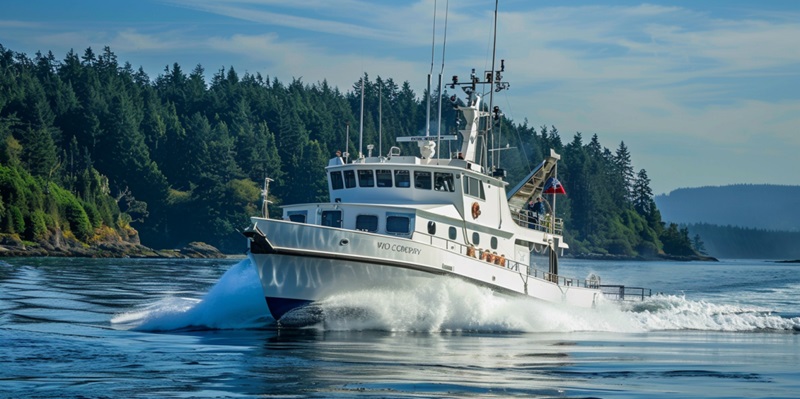The maritime industry, vital for global commerce, has often skated by on old technologies, lagging behind sectors like aviation in embracing innovation—until now. Orca AI, a trailblazer from Tel Aviv, is steering ships into modern times with cutting-edge artificial intelligence. Their vision has attracted a whirlwind of support, culminating in a $23 million capital infusion led by prestigious firms such as OCV Partners and Mizma Ventures, with Santa Barbara Venture Partners and Playfair Capital also backing them. This investment propels Orca AI to a robust $38.6 million in total funding, a testament to the confidence the market has in their transformative tech.
The brainchild of Yarden Gross and Dor Raviv, Orca AI came to life in 2018 with an ardent mission—to enhance the safety, efficiency, and sustainability of navigating the vast blue seas. Thanks to their innovations, maritime operations have not only become safer but greener, with Orca AI’s platforms contributing to an annual 3-5% savings on fuel and slashing CO2 emissions by over 170,000 tons—a milestone for an industry under pressure to meet ever-stringent environmental regulations.
A Strategic Partnership for Enhanced Safety
This disruptive ascent is not going unnoticed. In a significant stride, Orca AI has forged a strategic partnership with North Standard, a powerhouse in marine insurance. Colin Gillespie, North Standard’s Global Head of Loss Prevention, recognized Orca AI’s role in supporting bridge teams and cutting down the perilous close-quarter incidents that have long haunted the maritime world. Gillespie’s nod to Orca is a strong signal; it’s an endorsement of the AI platform’s potential to uplift operational integrity and, by extension, navigate a safer future for the high seas.
The collaboration is more than a handshake—it’s a commitment by North Standard to embed Orca’s AI ingenuity within the bones of maritime operations, strengthening the sinews of marine safety and operational performance. For an industry that thrives on minimizing risk, this vote of confidence from an insurer is weighty. It validates Orca AI’s promise and lays down the gauntlet for others to step up to the plate.
Bridging Tech and Tradition in Maritime Operations
Yarden Gross, doubling as the helm and voice of Orca AI, sees the horizon clearly. Gross points to a past where the maritime sector has been a technological straggler, but with optics affixed on a new era—an era catalyzed by advancements like Elon Musk’s Starlink, which brings new connectivity to the open waters, facilitating the adoption of AI in shipping. Such innovations are pivotal, enabling the maritime industry to not only catch up but possibly lead in operational finesse and meeting sustainability benchmarks.
It’s a transformative age, heralded by Orca AI’s advancements and marked by substantial gains in operational standards. The company’s AI solutions, once futuristic visions, are now tangible realities, bolstering the maritime industry with impressive fuel savings and emission reductions. These strides directly support corporate sustainability objectives, showcasing an alignment of ecological responsibility with commercial savvy.
Positioning for a Future of Autonomous Shipping
For too long, the maritime sector idled with dated tech while industries like aviation soared with innovation. But a sea change is underway, led by Orca AI. This Tel Aviv pioneer is infusing the old-world shipping lanes with state-of-the-art artificial intelligence. Bolstered by a $23 million funding round commanded by OCV Partners and Mizma Ventures, along with support from Santa Barbara Venture Partners and Playfair Capital, Orca AI’s total treasure chest now brims with $38.6 million, reflecting a market confident in their revolutionary technology.
Orca AI’s odyssey began in 2018, conceived by visionaries Yarden Gross and Dor Raviv, with a pledge to forge safer, more efficient, and greener marine travel. Their ingenuity has had striking effects: not only enhancing safety but also fostering environmental stewardship. Orca AI’s systems now deliver a 3-5% annual fuel saving, trimming a significant 170,000 tons of CO2 emissions, thus helping the maritime industry to navigate the rising tides of stringent environmental norms.

